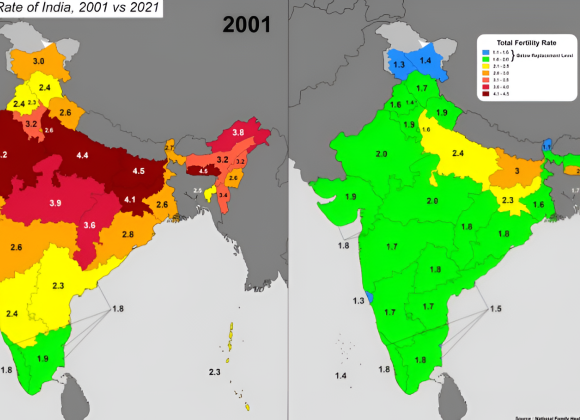Self-esteem is essential for a child’s emotional and psychological growth, shaping their confidence, relationships, and ability to handle challenges. A nurturing environment fosters resilience and self-worth, while low self-esteem can lead to self-doubt, anxiety, and reliance on external validation. However, toxic parenting is a widespread issue in India, with a UNICEF study revealing that Indian parents use 30 different kinds of abuse—including physical, verbal, and emotional harm—on children as young as 0 to 6 years old. Additionally, a systematic review found that up to 74% of Indian children experience physical abuse, 72% face emotional abuse, and 71% report neglect. [1] Toxic parenting, marked by criticism, neglect, and control, can severely damage a child’s self-perception, making them feel inadequate and fearful of failure. These effects often persist into adulthood, impacting their confidence and relationships, highlighting the urgent need for awareness and intervention.
What is Toxic Parenting?
Toxic parenting refers to a pattern of harmful behaviors by parents that negatively impact a child’s emotional, psychological, and social well-being. It includes excessive criticism, emotional neglect, manipulation, control, or abuse, creating an environment where the child feels unloved, fearful, or inadequate. Over time, this can lead to low self-esteem, anxiety, difficulty forming healthy relationships, and long-term emotional struggles.
Signs of Toxic Parenting
1. Physical or Verbal Abuse
Toxic parenting can involve shouting, name-calling, or physical punishment, leading to fear and emotional trauma. Constant exposure to such behavior can make the child struggle with self-confidence and personal relationships later in life.
2. Excessive Control
Toxic parents tend to micromanage their child’s life, leaving little to no room for independence. They may impose strict rules, limit decision-making opportunities, or pressure their child into career, lifestyle, or relationship choices against their will.
3. Favoritism or Neglect
If some parents have two or more children, they may show clear favoritism towards one while neglecting another. This creates deep emotional wounds, resentment, and a sense of inadequacy in the neglected child.
4. Manipulation and Guilt-Tripping
These parents use emotional tactics to control their child’s behavior, making them feel guilty for expressing their needs. Phrases like “After everything I’ve done for you” or “You’ll regret this” are commonly used to induce guilt and compliance.
5. Unrealistic Expectations
Some toxic parents expect perfection from their child, whether in academics, sports, or personal achievements. They impose unreachable standards, making the child feel like they’re never good enough, leading to anxiety and self-doubt.
How Toxic Parenting Affects Self-Esteem
1. Creates Self-Doubt and Insecurity
Constant criticism and belittling from toxic parents make children question their abilities and worth. When a child is repeatedly told they are not good enough, they internalize these messages, leading to persistent self-doubt and insecurity. They may struggle to believe in their own skills and hesitate to take on new challenges.
2. Causes Fear of Failure
Toxic parents often set unrealistic expectations and punish or shame their child for mistakes. This leads to an intense fear of failure, where the child avoids risks or new experiences out of anxiety. They may struggle with perfectionism, feeling that any small misstep makes them unworthy of love and respect.
3. Impacts Decision-Making Skills
Excessive control by toxic parents deprives children of opportunities to make their own choices. When they grow up without the ability to think independently, they may struggle with decision-making as adults, second-guessing their choices or relying on others to make decisions for them.
4. Contributes to Mental Health Struggles
Exposure to toxic parenting can lead to long-term mental health issues such as anxiety, depression, and chronic stress. Children who grow up in such environments may develop low self-esteem, social withdrawal, and difficulty regulating their emotions, which can carry into adulthood.
5. Fosters Dependence on External Validation
Children raised in toxic environments often do not receive the emotional support and encouragement they need. As a result, they grow up seeking approval from others to feel valued. They may become people-pleasers, constantly striving to earn validation through achievements, relationships, or social acceptance.
How to Overcome the Effects of Toxic Parenting
Healing from toxic parenting starts with recognizing its impact and setting healthy boundaries to protect emotional well-being. Challenging negative beliefs, seeking professional support, and building a positive support system help restore self-worth. Self-care practices like meditation and journaling aid in emotional recovery, while learning to trust oneself fosters confidence. Forgiveness, if chosen, can ease emotional burdens, and inner child healing can address unresolved pain. Though healing takes time, consistent efforts lead to greater self-esteem and a healthier, more fulfilling life.
Author’s View
Overcoming the effects of toxic parenting is a challenging yet transformative journey. By recognizing the damage, setting boundaries, and seeking emotional healing, individuals can rebuild their self-worth and lead healthier lives. Many people, including public figures, have spoken out about their struggles with toxic parenting. Indian singer and music director Amaal Mallik [2] has openly shared his experiences of growing up in a difficult family environment, facing immense pressure, and dealing with emotional neglect. His story highlights how toxic parenting can deeply affect one’s self-esteem and mental well-being but also how resilience and self-awareness can help break the cycle.
Healing takes time, but with self-care, support, and the courage to challenge harmful beliefs, anyone can move beyond their past and create a life filled with self-respect, confidence, and emotional freedom.




